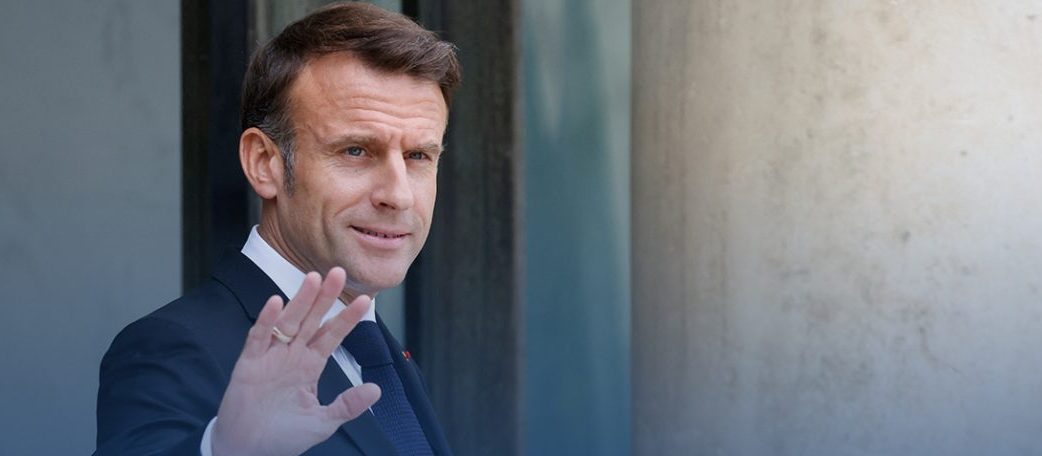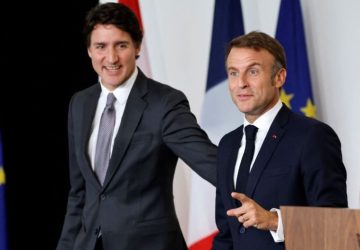French President Emmanuel Macron is set to make a state visit to Morocco “at the end of October” to strengthen bilateral relations after a prolonged period of diplomatic tension, the Elysée announced on Friday to AFP.
On Thursday, King Mohammed VI extended the invitation in a letter expressing optimism about “the promising opportunities ahead for our two countries,” according to the French presidency.
This visit will be “an opportunity to give our exceptional partnership a renewed and ambitious vision, covering several strategic sectors and taking into account the priorities of our two nations,” the Moroccan monarch added, as per the Elysée.
France has taken steps towards warming relations by addressing the issue of Western Sahara, a former Spanish colony largely controlled by Morocco but claimed by the Sahrawi independence movement, the Polisario Front.
On July 30, Paris bolstered its support for the Moroccan autonomy plan—which proposes limited self-rule under Moroccan sovereignty—now considering it “the only basis” for resolving the nearly 50-year-old conflict.
This gesture had been awaited by Morocco, which had already achieved a major diplomatic victory in 2020 when the Trump administration recognized its sovereignty over the territory in exchange for Morocco normalizing ties with Israel.
Under pressure from Rabat, France, the former colonial power with a large Moroccan diaspora, finally shifted its position following similar moves by Berlin and Madrid.
Anger from Algiers
Without explicitly recognizing Morocco’s sovereignty over Western Sahara, Emmanuel Macron agreed that “the present and future (of the territory) fall within the framework of Moroccan sovereignty.”
France’s policy shift unsurprisingly angered Algeria, which supports the Sahrawi independence movement. Algiers immediately recalled its ambassador to Paris, once again plunging bilateral relations into turmoil.
The Sahrawi independence movement has long demanded a referendum on self-determination, agreed upon as part of a 1991 ceasefire but never carried out.
Macron’s long-delayed visit, repeatedly discussed but postponed since 2022, is also an effort to move beyond other recent tensions.
France’s outreach to Algeria, which severed diplomatic ties with Morocco in 2021, had previously angered Rabat.
In 2021, France’s decision to halve the number of visas granted to Moroccans also drew sharp criticism. The policy, aimed at encouraging Rabat to cooperate more on illegal immigration, was reversed just over a year later, with visa issuance returning to normal.
Economic Prospects
France was also displeased by reports that the phones of Macron and other officials had been targeted in 2019 by Morocco using Israeli spyware Pegasus, allegations Rabat denied.
The warming of French-Moroccan relations is opening new economic and commercial opportunities for French businesses, which had been keeping a low profile due to the growing diplomatic tensions.
Shortly after France’s policy shift, French engineering firm Egis was awarded a contract to extend the high-speed rail line between Kenitra and Marrakech.
Western Sahara, with its vast solar and wind resources, is also strategic for Morocco’s economic development, as the kingdom has increasingly invested in renewable energy and hopes to play a key role in the green hydrogen market.
French companies are already present in the region, with energy giant Engie involved in building a desalination plant and a wind farm.
Meanwhile, France remains hopeful of restoring relations with Algeria, despite the latest diplomatic rift. Macron has expressed his commitment to continuing efforts towards “memory, truth, and reconciliation” with Algeria, following the re-election of President Abdelmadjid Tebboune on September 7, to whom he extended his “warmest congratulations.”





